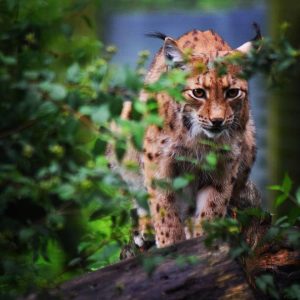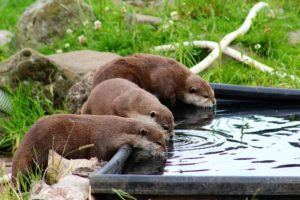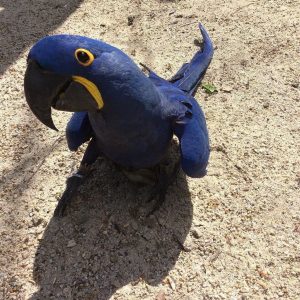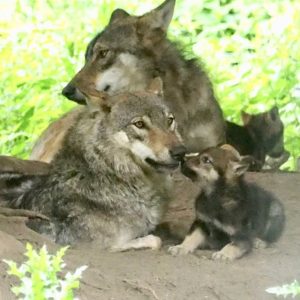In the final week of Dundee & Angus’s DYW Summer Sectors Campaign we have been looking at the huge range of careers that are connected to working with animals and wildlife. How better to cap that off than with a visit to our local wildlife centre, Camperdown Wildlife Centre.
We had the opportunity to speak to Bradly Yule, the Conservation Network Manager for Camperdown Wildlife Centre. Bradly’s passion for working with animals and conservation is clear as soon as he starts talking and he makes it obvious that this is true of anyone who chooses to work with animals.
Bradly started volunteering at Camperdown Wildlife Centre when he was 14 years old. 38 years later he is still here, having done a variety of different jobs, gained qualifications and experience and seen the landscapes of zoos, including Camperdown, change with a huge focus now on Conservation and global links to protect the animals in his care at the Wildlife Centre and in their natural habitat.
- What made you want a career in the wildlife sector?
I started as a volunteer at 14 years old, but I knew from when I was seven or eight that I wanted to work 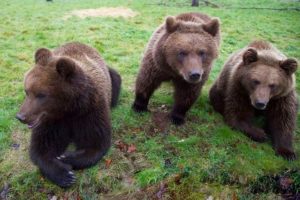 with animals, but didn’t want to be a vet. I was very engaged in the outdoors when I was young so a zookeeper seemed like a good way to combine all the things I was passionate about. I started as a volunteer, moved onto seasonal work, became a zoo keeper, then the learning manager here at Camperdown before becoming the Conservation Network Manager and co-managing the whole zoo. I did qualifications as I went.
with animals, but didn’t want to be a vet. I was very engaged in the outdoors when I was young so a zookeeper seemed like a good way to combine all the things I was passionate about. I started as a volunteer, moved onto seasonal work, became a zoo keeper, then the learning manager here at Camperdown before becoming the Conservation Network Manager and co-managing the whole zoo. I did qualifications as I went.
Anyone who wants to work with animals or wildlife does it for the passion, never for the money. But the rewards are incredible. 95% of the job is hard, physical work, but the other 5% more than makes up for it. Getting to engage with the animals, build relationships with them and know you are making a difference not just in their lives, but in the world.
- What subjects did you take in school and what pathway would you recommend for someone interested in a career working with animals or wildlife?
When I was at school I took; English, Maths, Geography, Anatomy, Physics, Biology, Wood Work and History. Anyone who is interested in working with animals or wildlife should take English, Maths, at least one science and practical subjects like Wood Work, Metal Work or Home Economics while at school. You need these practical skills because as part of a zoo keepers job you will have to help build and mend enclosures, electric fences, the grounds and develop and implement enrichment programmes for the animals.
The only recognised Zoo Keeping qualification in the UK is the DMZAA which is delivered down in Hampshire. Parts of this can be done long distance and it can be undertaken while you are a volunteer, but it requires hands on work to be completed. All zoos now look for qualifications in their zoo keepers. You can do degrees in Zoology, Biology and Ecology and while these are good qualifications to have, they don’t tell you how to care for animals. They are brilliant if you want research wildlife and animals, or if you want to work in a zoo or conservation organisation without working directly with the animals. These degrees can also be a good starting point for a zoo keeper, but you will have to be prepared to do additional qualifications on the practical aspects of working with animals.
Dundee & Angus College offer a qualification in animal care and this as well is a brilliant starting point, especially if you want to go into working with livestock or small animals. The best bit about the D&A Course is that every year Camperdown take on one student on a temporary contract. This offers the student incredible experiences of working directly with animals and members of the public in a professional zoo and conservation setting. Experiences that will not only set the student apart from others applying for similar jobs, but will give them a real life taster of what they could achieve and hopefully help them determine what they want to do next.
- What would you say is one of the best things about working in your sector?
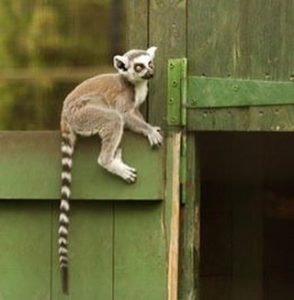 For people who work with animals, it’s a vocation, you do it for the love of it. This is the job for you if you like to get close to animals and work with them regularly. There is a serious objective to zoos now, we are conservation organisations. We work on a global scale to protect and preserve species until it is suitable to reintroduce them in the wild. It is this passion and this objective that drives me, even thirty something years later. I’m a manager now with responsibilities and aims, but I will always be a zoo keeper.
For people who work with animals, it’s a vocation, you do it for the love of it. This is the job for you if you like to get close to animals and work with them regularly. There is a serious objective to zoos now, we are conservation organisations. We work on a global scale to protect and preserve species until it is suitable to reintroduce them in the wild. It is this passion and this objective that drives me, even thirty something years later. I’m a manager now with responsibilities and aims, but I will always be a zoo keeper.
- What advice would you give to a young person who is thinking about entering a career working with animals?
There is a distinct division between people who want to work with animals and those who want to work with wildlife. But whatever it is you want to do you need to know your stuff, you need to be passionate and knowledgeable. Engage with your subject, read about it, watch documentaries, visit, volunteer. These are essential for starting the pathway for working with animals or wildlife. Make homework your hobby and an essential part of you.
- What does a normal working day look like for you?
Our zoo keepers are here at 8am to start preparing food for the animals (dry food compounds, fruit and veg or meat) like a chef you have to stick to the menu and recipe to make sure the animals get all the nutrients they need. Some animals have to be fed four times a day and when you are feeding the animals you are checking them to make sure they are happy and healthy and their enclosure is stimulating and secure. After feeding comes cleaning out the enclosures, giving another chance to check on the animals and their welfare. Continuing development work (painting, litter patrol, park maintenance, enclosure maintenance.) One of the most important things a keeper does is plan and implement enrichment programmes for the animals to keep them stimulated in their environment. Hiding food, creating toys and challenges which are rewarded with treats. Keepers are also expected to engage with the public as they go about their duties and often give talks. As the day comes to a close keepers check the animals again, and put out fresh bedding as needed. There is food to prepare for the next day and the paperwork that needs to be done. Someone has to order the staggering amount of food the animals go through each year. Medications need to be given and preparations needed for the next day. Then its home time. Although some keepers come back during the night for specific reasons.
- What skills would you say are needed for a job working in zoos or with animals and wildlife?
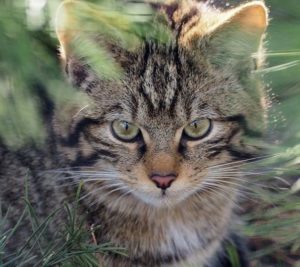
Obviously you need to like animals and you must be knowledgeable about conservation. You need to be passionate, practical and happy to work outdoors.
- What skills have you learned?
Even now I am always learning. Every animal and each situation is different; you learn from every interaction. I have become even more compassionate than I was before. I have learnt much more about breeding programmes and animal care. But as I have progressed my career I have had to learn other skills and about other topics as well. I have developed my knowledge and skills in education, being able to engage the public as well as developing a business head. This one can sometimes be the most important because if the zoo can’t afford to run, we can’t afford to protect and preserve these incredible animals.
- You’ve come a long way in your career. Do you have any future aspirations for you career?
I am happy where I am. Camperdown Wildlife Park isn’t just a small city centre zoo in a small country. We are a key part of an international plan to protect and preserve species on a global scale. We are fighting against a growing global population that consumes too many natural resources which has a direct negative affect on animals and their habitats. What I do on a day to day basis contributes in a small way to rectify this, I’m happy. But until we don’t need zoos anymore we need to keep going.
- Is there anything else you want to say to young people who are interested in working with animals or wildlife?
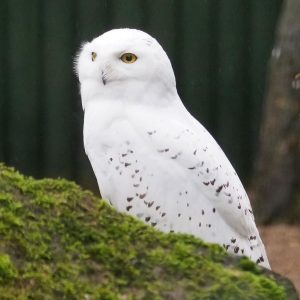 Don’t just think about being a zookeeper. There are so many rewarding careers that are needed to keep zoos running and conservation successful. We need Registrars (who keep breeding and conversation records) Vets, Vet Nurses, Administrators, Gardeners, Visitors Assistants, Researchers, Designers, Cleaners and so much more. All these roles are intricately linked and they are all needed to keep the zoo and its conservation efforts running.
Don’t just think about being a zookeeper. There are so many rewarding careers that are needed to keep zoos running and conservation successful. We need Registrars (who keep breeding and conversation records) Vets, Vet Nurses, Administrators, Gardeners, Visitors Assistants, Researchers, Designers, Cleaners and so much more. All these roles are intricately linked and they are all needed to keep the zoo and its conservation efforts running.
